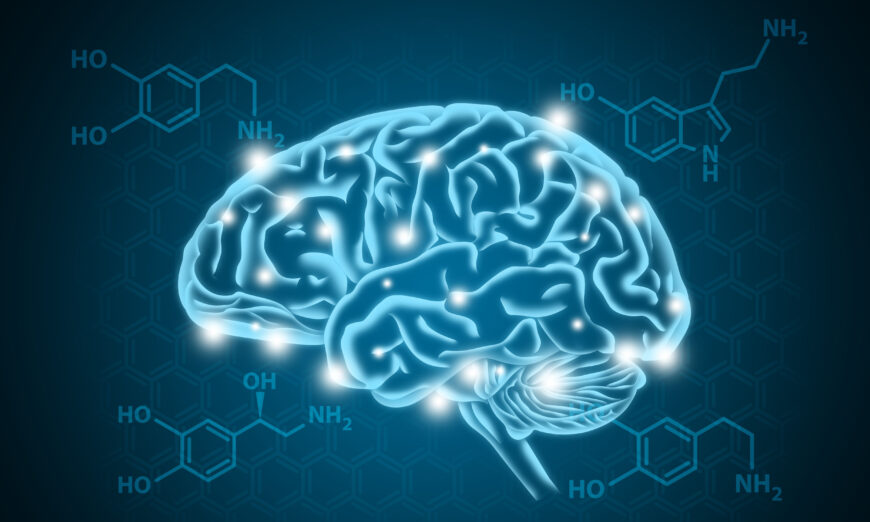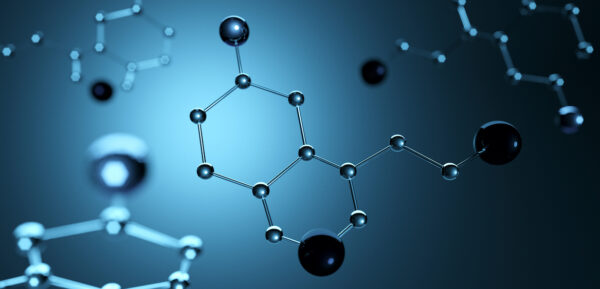This is very interesting and actually shows us the biological pathways which must apply to other cases. This would not have actually shown up in clinical trials, not least because noone would be looking, and we have it now because it is showing up without the usual trauma.
Something else we can throw at the foot of our so called vaccines.
Disgusting really. This has all been a mega experiment inferring genocidal intent and disclosing a range of difficult side effects. The genocidal intent can be deduced by the known toxicity inferred from originating clinical trials. They released it anyway knowing folks would die and be injured at ba significant level.
COVID-19 Can Cause Viral-Induced Trauma
Virus interrupts a process linked to depression, leading to higher percentages of PTSD than war veterans
Amy Denney
Feb 16 2023
https://www.theepochtimes.com/health/covid-19-can-cause-viral-induced-trauma_5023378.html?
COVID-19 infections are responsible for an upswing in post-traumatic stress disorder (PTSD), but now the underlying mechanisms are emerging from research, offering a deeper understanding of this virus-induced mental health disorder.
A metabolic process ongoing in the gut is interrupted when angiotensin-converting enzyme-2 (ACE-2), the receptor site for SARS-CoV-2, is occupied by the virus. Tryptophan transporter is typically co-expressed with ACE-2, but when the virus is taking over ACE-2, tryptophan is not absorbed.
This is problematic because tryptophan, an essential amino acid that must be taken in by the diet, plays a vital role in making serotonin and melatonin. Tryptophan—found in foods like bananas, oats, tuna, chicken, cheese, and turkey—is the sole precursor for serotonin, a neurotransmitter involved in mood, behavior, and cognition. About 30 percent of those with acute COVID infections also have PTSD.
“As serotonin is an antidepressant, the virus can cause depression directly,” Dr. Adonis Sfera, psychiatrist, told The Epoch Times. “Tryptophan is also important for PTSD and we think that virus-induced PTSD occurs because of low tryptophan. Thus, in addition to being depressed because they got infected, people can develop depression and PTSD directly by virus-disrupted tryptophan absorption.”
This may explain the phenomenon of infections causing higher percentages of PTSD than those seen in military and war veterans, which is about 16 percent. Besides COVID, human immunodeficiency virus (HIV) and Ebola are also associated with PTSD rates of 30 percent or higher.
Furthermore, Sfera and others hypothesized in 2021 that COVID disrupts the intestinal and blood-brain barriers and produces premature endothelial cell senescence, a cellular arrest process involved in age-related disease. This can activate stress molecules, and give them access to the amygdala and other areas of the brain. It explains not only PTSD but also other symptoms of long-COVID such as chronic fatigue and brain fog. Those findings have since been validated by other studies.
At the center of this mechanism is the breakdown of the intestinal epithelial barrier that allows for the translocation of microorganisms out of their home in the microbiome, the normally contained space where bacteria, viruses, fungi, and other microbes live in symbiotic fashion—even when fighting off colds. Studies have shown COVID also results in the loss of immunoprotective bacteria such as bifidobacteria.
Tryptophan metabolism is a byproduct of bifidobacteria, so tryptophan is doubly assaulted in COVID infections. Another function of it is producing melatonin, which protects the body from premature cellular senescence, Sfera said. Loss of tryptophan is also associated with metabolic syndrome, high blood pressure, and strokes.
“That’s why it’s important that we pay attention to bifidobacterium and other protective germs,” he said. “It has consequences that we don’t know of yet.”
Sfera said a loss of bifidobacteria is a higher possibility in those who experience gastrointestinal symptoms with the virus, and it’s not exactly a new phenomenon. Sfera said HIV infections also cause the loss of microbes, and those patients also sometimes experience dementia, which he said has already been documented in COVID cases. It could be an alarm for more problematic, chronic diseases on the horizon.
The Trauma-Gut Connection
Stress is known to alter the gut microbiota and gut barrier function, and research suggests certain people are more predisposed to PTSD based on early microbiome formation and childhood stress.
PTSD is a mental health diagnosis typically linked to going through or witnessing a life-threatening event. While a certain amount of stress is expected in such circumstances, lingering symptoms that interfere with quality of life can be warning signs.
The four common types of PTSD symptoms, according to the U.S. Department of Veterans Affairs are:Reliving the event with memories that intrude at any time in the form of flashbacks, nightmares, or sensory triggers.
Avoidance of situations and people that remind you of the traumatic event, including the inability to talk about it. Staying too busy and distracted to think about it is also a type of avoidance.
Generally feeling more negative and depressed than before the event, including using techniques to numb emotions and feeling guilt or shame about the event.
Physical symptoms of rapid heart rate and breathing are associated with hyperarousal. These can include being hypervigilant and jittery, and having a hard time focusing and sleeping.
Childhood trauma can alter the gut microbiome, creating long-lasting immune consequences and vulnerabilities, and raising the risk of disorders like PTSD later in life, according to a 2016 study published in The Canadian Journal of Psychiatry. Enhanced levels of proinflammatory cytokines and stress also predispose people to PTSD.
In the case of COVID, having a pre-existing psychiatric diagnosis makes it more likely to have recurrent depression, anxiety, and addiction risks. Restrictive measures, mandatory isolation, social distancing, and the absence of support systems were burdensome on fragile populations, according to a 2021 article in Frontiers in Cellular Neuroscience.
“Moreover, the experience of being hospitalized with COVID-19, facing intubation, tracheostomy, and the possibility of death, amplified the perception of life-threat, facilitating the development of stress-related disorders as well as depression and anxiety,” the article said.
COVID’s Reverberating Trauma
For LaDonna Smith, COVID represented a trauma like nothing she had experienced before, and she’s still coping with grief and triggers that began 18 months ago.
“My case of COVID was mild overall, but it was heightened because of the fear,” she said. “The what-ifs were the hardest, wondering ‘Is there something in me genetically that I won’t handle (the virus) well?’ That constant fear was the biggest thing.”
Her concerns were valid. Before she contracted COVID, the virus led to her 87-year-old father’s death after his hospitalization. Smith’s sister and brother-in-law also were both hospitalized in intensive care at the time of her dad’s death—in isolation from one another and visitors and unable to participate in the funeral.
Smith’s dad had dementia and was legally blind, making communication in the hospital more challenging. “Not being able to be there with him and knowing he was agitated. It was just an awful, awful thing,” she said. “The fact that he had to go through that alone.”
Smith choked back tears as she recounted that it wasn’t until her dad was moved off the COVID floor and to the hospice that she was finally able to hold his hand and offer comfort. By then, he was comatose. Her stress recovery is continuous, complicated by the timing of two of her adult children moving out of state, plus her own chronic health diagnosis after years of gastrointestinal distress.
“The isolation COVID brought was as devastating as the disease itself,” she said. “God just brought people into my life. It was such a healing process. I started seeing a counselor. It has been ongoing.”
Leveraging Oxytocin to Heal
Social distancing, lack of social interaction, and touch—vital for boosting oxytocin—affect recovery and will continue to have far-reaching health consequences, according to a study in Psychoneuroendocrinology a year ago that examined the relationship between social isolation and oxytocin.
“[P]andemic-associated social restrictions resulted in increased levels of psychosocial stress, and the loss of an essential stress buffer and important parameter for general mental and physical health—social support. This in combination with the fear of the disease, the COVID-19 pandemic has substantial impact on the world’s mental health,” authors of the study wrote.
There’s evidence that oxytocin, a neurotransmitter sometimes called the “love hormone” because it’s involved in mother-infant bonding and intimate relationships, plays a role in modulating the serotonergic system. This nervous system component modulates emotional functions and is the pathway for many psychiatric disorders. Both serotonin and oxytocin have been implicated in the control of stress, anxiety, and social cooperation.
A 2022 review of oxytocin research in Frontiers in Endocrinology suggested that oxytocin could also play a role in preventing and treating COVID-19. It cited studies that highlight its immune-regulating and anti-stress functions that could help ward off viral infections. Oxytocin has an anti-atherosclerosis and an antihypertensive effect, can reduce cardiovascular complications, and is involved in promoting tissue regeneration.
Oxytocin could even offset some of the damage the pandemic has done to mental health and help people mobilize greater personal immunity. Used in synthetic form to start labor, it is also available as an intranasal spray for psychiatric, endocrine, and weight management purposes.
But a prescription may not be necessary, the article states. There are also ways to increase oxytocin production naturally, including:Light exposure, both natural and bright indoor lights.
Music and other auditory stimuli.
Hugging, cuddling, and touch.
Probiotics.
Exercise.
Massage therapy.
Meditation.
Breathing exercises.
Aromatherapy.
Reading.
Oxytocin can be a strategy in a broader personal protection plan against disease and illness, and it’s an area that warrants more study and attention, argue the authors of the Frontiers in Endocrinology review.
“[F]urther exploring the preventive potential of mobilizing endogenous oxytocin secretion, executing intense clinical trials and applying exogenous oxytocin or its agonists are warranted in controlling COVID-19 and other viral diseases.”
(Vladimir Zotov/Shutterstock) Model of serotonin molecule, Hormone of Happiness.


No comments:
Post a Comment